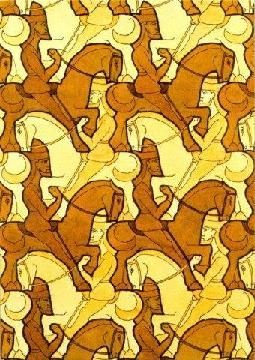Study of being ... does it exist?
 Within Philosophy, ontology is that part of metaphysics, one of the most important disciplines within the philosophical field, which deals with being in a general sense and with its most transcendental properties. If we had to define what ontology basically does in three words, it would be: it studies being and if we had to associate this branch of philosophical knowledge with a question, it should be: does it exist?
Within Philosophy, ontology is that part of metaphysics, one of the most important disciplines within the philosophical field, which deals with being in a general sense and with its most transcendental properties. If we had to define what ontology basically does in three words, it would be: it studies being and if we had to associate this branch of philosophical knowledge with a question, it should be: does it exist?
The ontology or theory of being as many like to call it, deals with the study of everything that is, how it is, what has made it possible, dealing with the definition of what it is to be and what it is not and the establishment of those fundamental categories or general ways of being that they have things starting from the in-depth study of their properties, structures and systems.
Among other things, the ontology will focus on how entities can be classified in certain ways, within hierarchies and subdivided according to their similarities and differences. Within these entities, objects, things, people, concepts and ideas, among others, can be cited.
In a more general sense, it could be said that ontology will deal with reflecting on the conceptions of reality, their relationships and the characteristics of these.
And on the other hand, likewise, historically ontology has had the task of delving into, investigating questions, more mysterious or more complex to elucidate, such as the existence of God, the truth of ideas and so many other things that are linked to the abstract and not the tangible reality.
Because of course, abstract entities, as we already mentioned the ideas, numbers and concepts, among others, are the most difficult to address if we compare them with the concrete ones, which are there at our fingertips: objects, plants, among others. .
Origin of the concept and its use in classical Greece
Its name as ontology dates back to the seventeenth century, more precisely to the year 1613 and it was the philosopher Rodolfo Goclenio, in his work called Lexicon philosophicum, quo tanquam clave philosophiae fores aperiuntur, who for the first time used the term and reaffirmed what had been held years, that ontology is the philosophy of art. Later, the rest of the usages agreed in the same and contributed even more in identifying it with metaphysics.
In any case, we must say that its approach is certainly old and long before the birth of its formal name in the century just indicated. In ancient Greece, to be more precise, the great classical philosophers such as Plato and Aristotle were able to study this issue of the entity, of being, and of precisely categorizing what is fundamental and important in that being. In this initiatory time of study, ontology was called metaphysics.
The concept acquires relevance in Informatics
In recent years and as a result of the takeoff that new technologies have had in the field of computing, the term of ontology, curiously, moved to this field a priori so far removed from the philosophical field with which it is always and unfailingly linked to the term .
So, for computing, ontology will be the formulation of a precise conceptual scheme on one or more domains with the mission of streamlining communication and the exchange of information between various systems and entities. As we see from the application of the term, there is a link with its original concept despite being in a totally different context.
Typically, computer ontology is applied at instances of technical problem solving, when a specific classification is necessary, among others.









